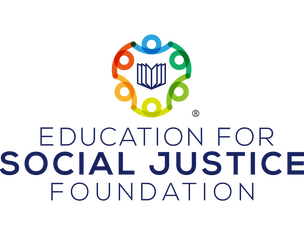Commission on the Status of Women (CSW): UN & NGO
UN Commission on the Status of Women (CSW)
In 1946, the UN body created the Commission on the Status of Women (CSW) to address women’s issues and discrimination. It is rooted in the UN Charter that affirms gender equality specified in the Preamble: “faith in fundamental human rights, in the dignity of the human person, in equal rights of men and women and of nations large and small.” The Commission consists of 45 UN Member States elected every four years by the Economic and Social Council (ECOSOC) on the basis of equitable geographical distribution. To learn more, click here.
Agreed Conclusions
The principal output of the Commission on the Status of Women is the agreed conclusions on priority themes set for each year. Agreed conclusions contain an analysis of the priority theme and a set of concrete recommendations for governments, intergovernmental bodies and other institutions, civil society actors and other relevant stakeholders, to be implemented at the international, national, regional and local level—UN Women
The Agreed Conclusions adopted at the annual sessions of the Commission are available at CSW's website, https://www.unwomen.org/en/csw/outcomes, for download in Adobe PDF format.
The Agreed Conclusions adopted at the annual sessions of the Commission are available at CSW's website, https://www.unwomen.org/en/csw/outcomes, for download in Adobe PDF format.
NGO CSW
The first NGO CSW was established in New York in 1972, while the NGO CSW committee in Geneva and European NGO CSW in Vienna began in 1973 and 1982 repectively. All of them have a similar mandate for providing a forum for exchanging information among NGOs interested in participating and influencing those UN observances. Article 71 in the UN Charter specifies that NGOs may be consulted: “The Economic and Social Council (ECOSOC) may make suitable arrangements for consultation with non-governmental organizations which are concerned with matters within its competence. Such arrangements may be made with international organizations, and where appropriate, with national organizations after consultation with the Member of the United Nations concerned.” The NGO CSW Forum is the annual two-week-long civil society event that runs parallel to the UN Commission on the Status of Women (CSW). To learn more, click here.
_______________________________________________________
Convention on the Elimination of Discrimination against Women (CEDAW)
Turning the CSW’s Declaration on the Elimination of Discrimination against Women into a binding treaty, in 1979, the UN General Assembly adopted the Convention on the Elimination of All Forms of Discrimination Against Women (CEDAW). Instituted in 1981, CEDAW has been ratified by 189 states. This convention consolidates all international standards regarding equal rights between the sexes, and, therefore, is often referred to as an international “Bill of Rights” for women. While 97 percent of the countries in the world ratified the CEDAW, the United States is one of a few countries that hasn’t. At a city level, San Francisco became the first city to adopt an ordinance reflecting the principles of CEDAW in 1998.
For more information, refer to the CEDAW fact sheet prepared by US Women's Caucus at the UN.
For more information, refer to the CEDAW fact sheet prepared by US Women's Caucus at the UN.
_______________________________________________________
